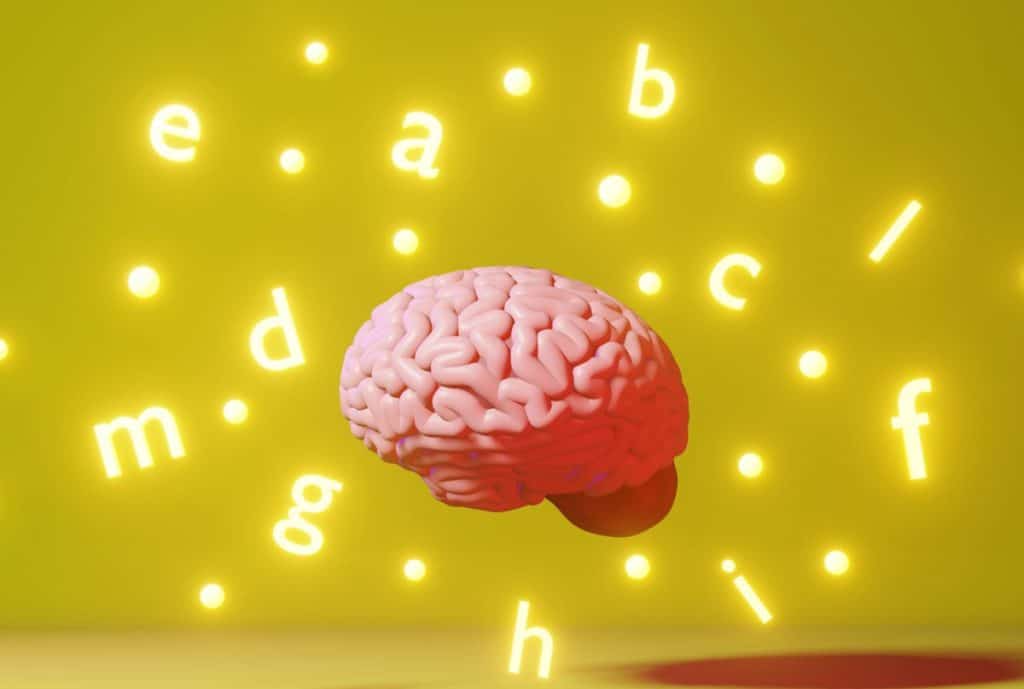
Dyslexia is a learning difficulty that primarily affects the skills involved in accurate and fluent word reading and spelling. One of the most reliable and often-quoted associated characteristics of dyslexia is an inefficiency in short-term memory.
Short-term memory is the capacity to store a small amount of information in the mind and keep it readily available for a short period.
Deficits in short-term memory and rapid naming have been mainly interpreted within the phonological core deficit hypothesis (Trecy, Steve & Martine, 2013; Elliott & Grigorenko, 2014).
The phonological core deficit hypothesis suggests that dyslexia is due to a deficit in phonological processing, including poor phonological awareness, or the ability to determine the constituent sounds comprising spoken words. Verbal short-term memory capacity, measured by digit span or non-word repetition tasks, is typically reduced in children with dyslexia (Snowling, Goulandris & Defty, 1996). This reduction is still present in adults with a history of dyslexia (Majerus & Cowan, 2016).
Is short-term memory a core deficit?
Ramus and Szenkovits (2008) questioned whether short-term memory deficits in dyslexia are perhaps a basic impairment rather than being accounted for by phonological processing difficulties.
In an attempt to answer this question, Trecy, Steve, and Martine (2013) distinguished between item and order retention processes. While short-term memory for item information has been shown to depend on the quality of underlying phonological representations and hence should be impaired in dyslexia, short-term memory for order information is considered to reflect core short-term memory processes independent from language processing.
Study on dyslexia and short-term memory
In their study, 30 adults with dyslexia and 30 control participants were matched for age, education, vocabulary, and IQ. They were presented with short-term memory tasks that distinguished item and order short-term memory capacities.
The researchers observed not only impaired order short-term memory in adults with dyslexia, but this impairment was independent of item short-term memory impairment.
This study shows that adults with dyslexia present a deficit in core verbal short-term memory processes. This deficit cannot be accounted for by the language processing difficulties that characterize dyslexia. These results support theoretical accounts considering independent order short-term memory and item short-term memory processes, with a potentially causal involvement of order short-term memory processes in reading acquisition.
How Edublox can help
Edublox Online Tutor (EOT) houses several multisensory cognitive training programs that enable students to overcome learning obstacles and reach their full potential.
EOT is founded on pedagogical research and 30+ years of experience demonstrating that weak underlying cognitive skills account for most learning difficulties. Underlying cognitive skills include short-term memory. Specific cognitive exercises can strengthen these weaknesses leading to increased performance in reading, spelling, writing, math, and learning.
In addition to cognitive training, EOT offers reading and spelling help that is effective for various learning difficulties, including dyslexia.
Haven’t heard of Edublox before? Watch our explainer video below and visit our review page for many stories on how Edublox training and tutoring have helped turn dyslexia around. Book a free consultation to discuss your child’s learning needs.

.
References:
Elliott, J. G., & Grigorenko, E. L. (2014). The dyslexia debate. Cambridge: Cambridge University Press.
Majerus, S., & Cowan, N. (2016). The nature of verbal short-term impairment in dyslexia: The importance of serial order. Frontiers in Psychology. https://doi.org/10.3389/fpsyg.2016.01522
Ramus, F., & Szenkovits, G. (2008). What phonological deficit? Quarterly Journal of Experimental Psychology, 61(1), 129-141.
Snowling, M. J., Goulandris, N., & Defty, N. (1996). A longitudinal study of reading development in dyslexic children. Journal of Educational Psychology, 88(4), 653-669.
Trecy, M. P., Steve, M., & Martine, P. (2013). Impaired short-term memory for order in adults with dyslexia. Research in Developmental Disabilities, 34(7), 2211-2223.


